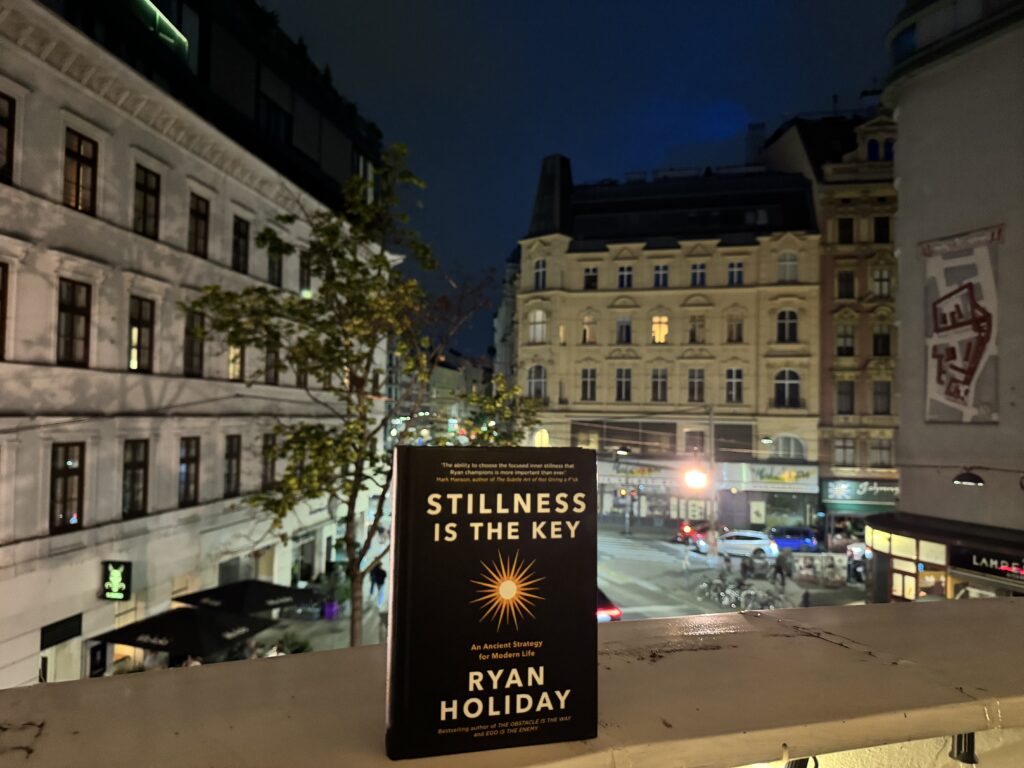Ryan Holiday’s “Stillness Is the Key” is a thought-provoking exploration into the concept of stillness as a crucial element of a successful and fulfilling life. Building on the Stoic philosophy that has underpinned much of his previous work, Holiday takes readers on a journey through the benefits of embracing stillness to enhance both personal and professional well-being.
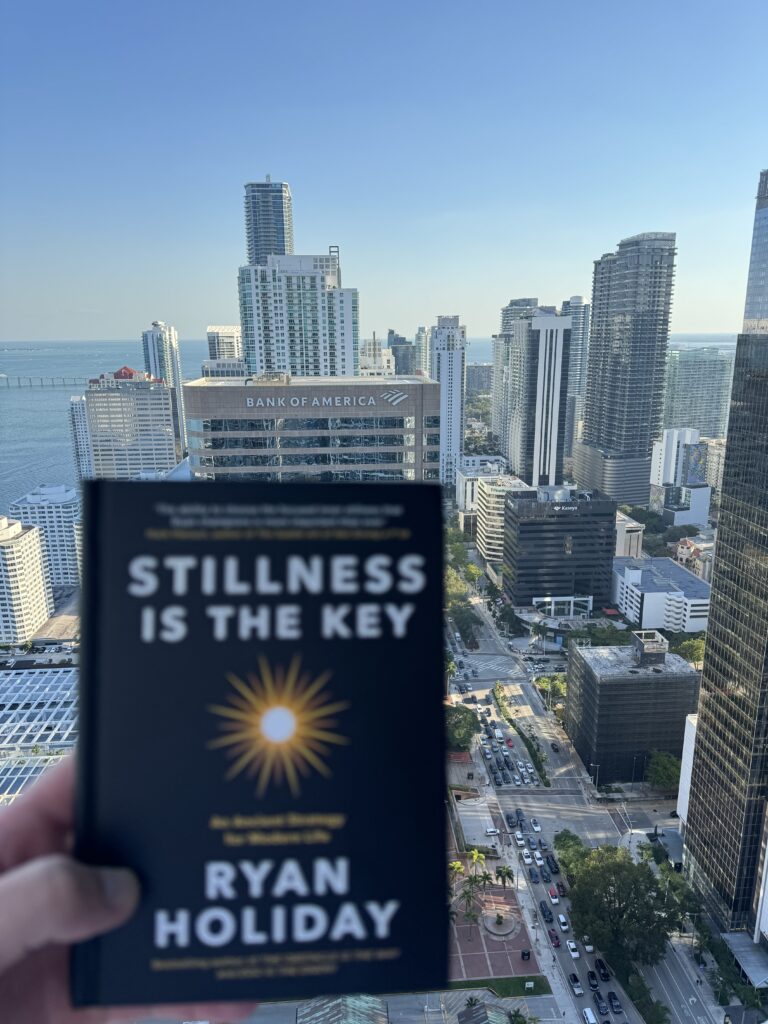
The book is structured around three central themes: the mind, the spirit, and the body, each of which Holiday argues must be cultivated in a state of calm to achieve true success and contentment. The integration of these themes is woven through historical anecdotes, philosophical insights, and practical advice, creating a comprehensive guide to achieving inner peace and effectiveness.
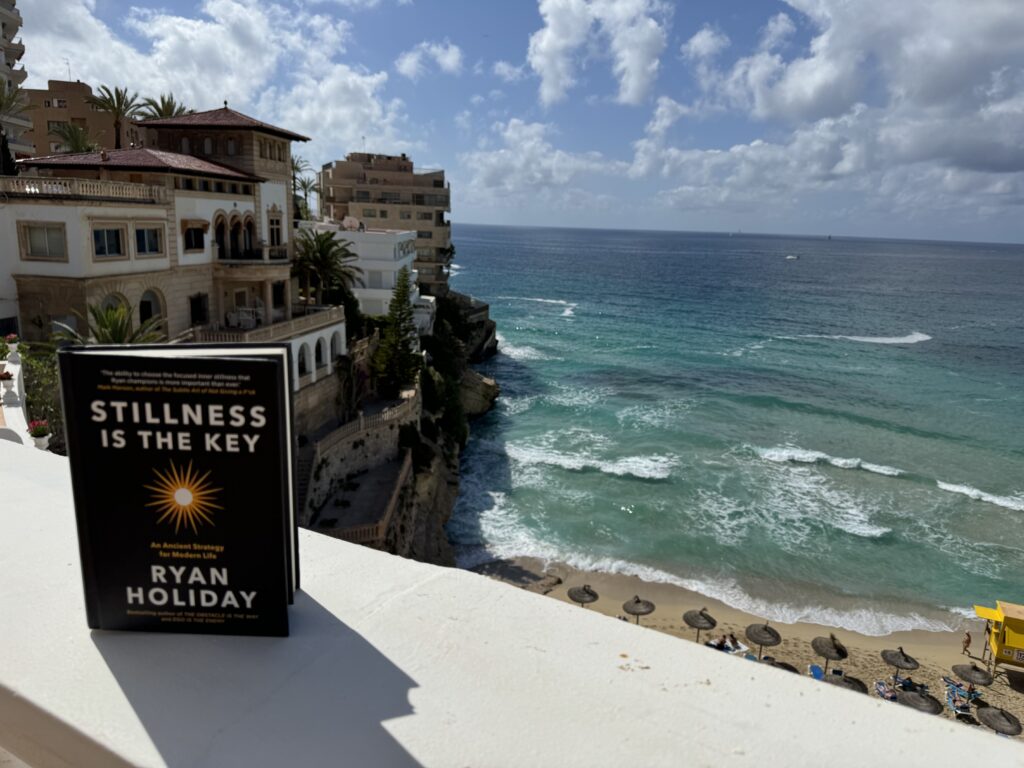
Holiday’s writing is both accessible and engaging, with each chapter offering a blend of historical examples and modern-day applications. He draws on a diverse range of figures—from ancient philosophers like Marcus Aurelius to contemporary thinkers and leaders—to illustrate how stillness can be a transformative force in various aspects of life.
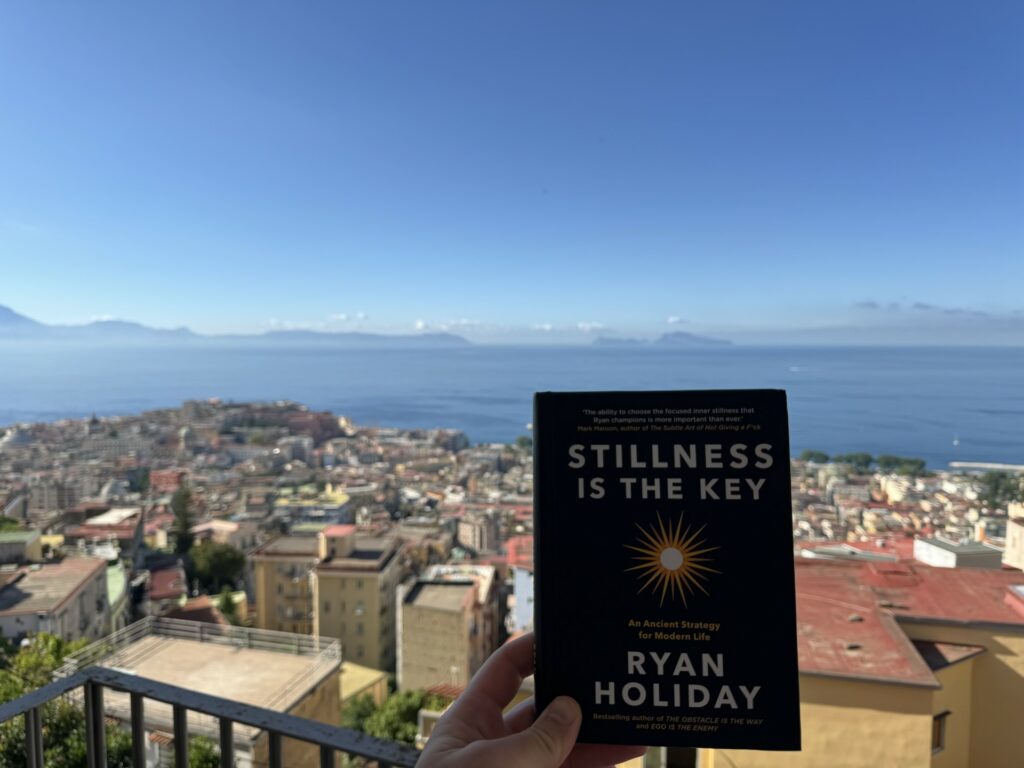
One notable aspect of this book, consistent with Holiday’s previous works, is his subtle but clear disdain for former President Donald Trump. Holiday integrates his criticism in a way that might feel somewhat out of place for readers primarily focused on the book’s central themes. While his political commentary is not the main focus, it does surface intermittently, reflecting his broader views on leadership and integrity. This can be a point of contention for readers who might prefer a more neutral tone in a book about personal development.
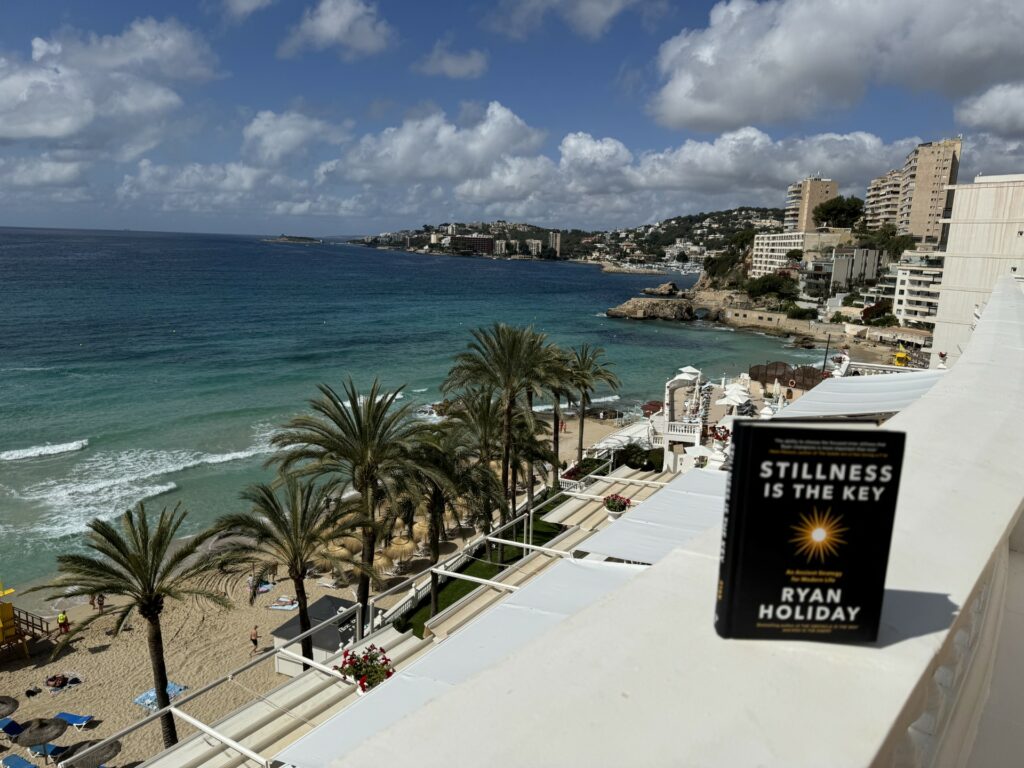
One of the book’s greatest strengths is its practical approach. Holiday doesn’t just dwell on the abstract idea of stillness but provides actionable strategies to cultivate it. Techniques such as mindfulness, journaling, and setting boundaries are explored in depth, giving readers tangible tools to incorporate into their daily routines. The book is peppered with exercises and reflections that encourage readers to actively engage with the material and apply it to their own lives.
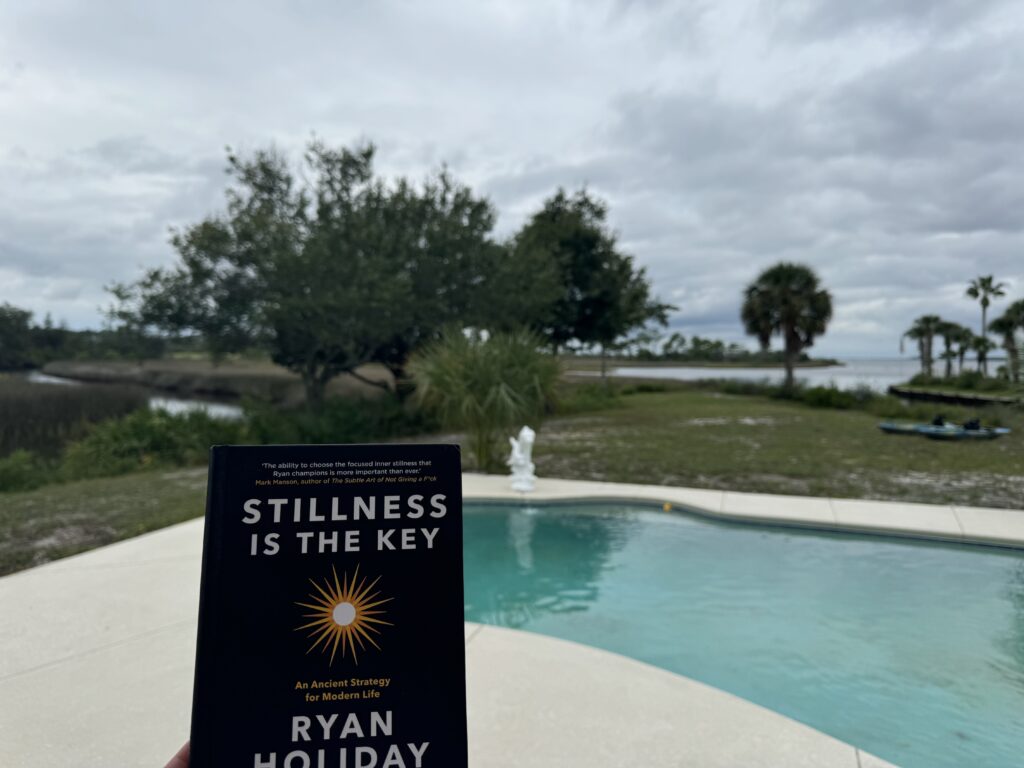
However, some readers might find the repetitiveness of certain ideas and examples a bit tedious. While Holiday’s emphasis on stillness is well-supported by his arguments, there are moments when the book feels a bit circular, reiterating the same points in slightly different ways.
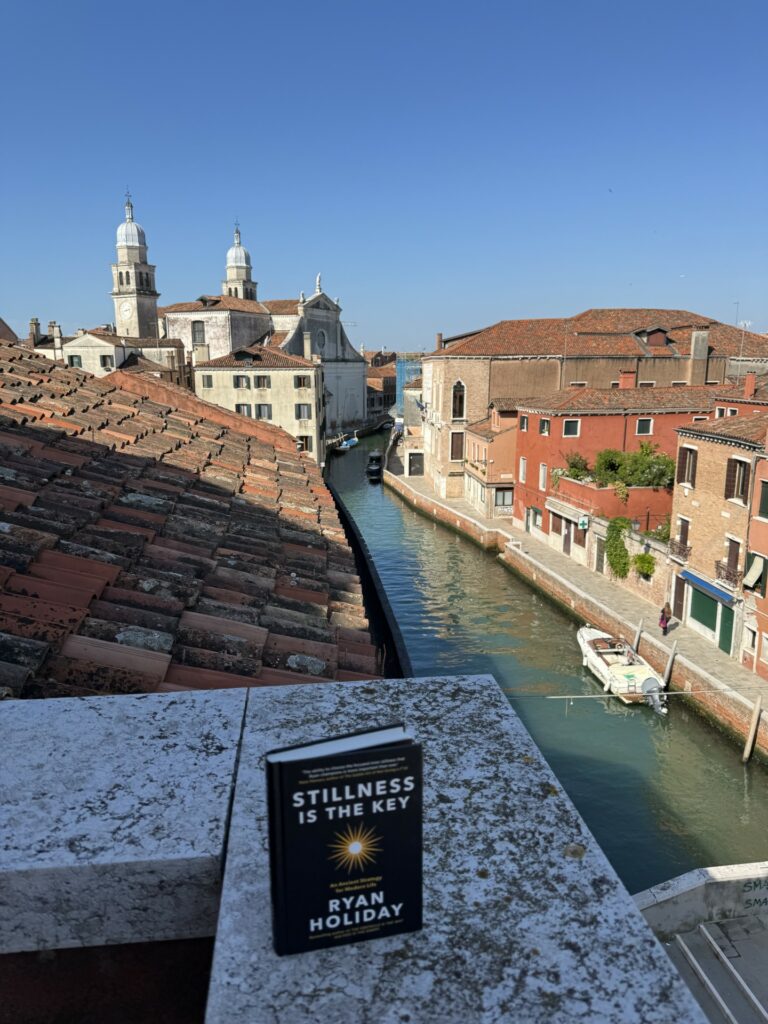
Overall, “Stillness Is the Key” stands out as a compelling and relevant read for anyone looking to cultivate a more serene and purposeful life. Holiday’s ability to blend philosophical wisdom with practical advice makes this book a valuable resource for those seeking to navigate the complexities of modern life with greater clarity and calm. If you’re interested in exploring how stillness can be a powerful ally in achieving personal and professional goals, this book is certainly worth your time, though be prepared for the occasional foray into Holiday’s broader political perspectives.
To Purchase a Copy of this book, Click Here
